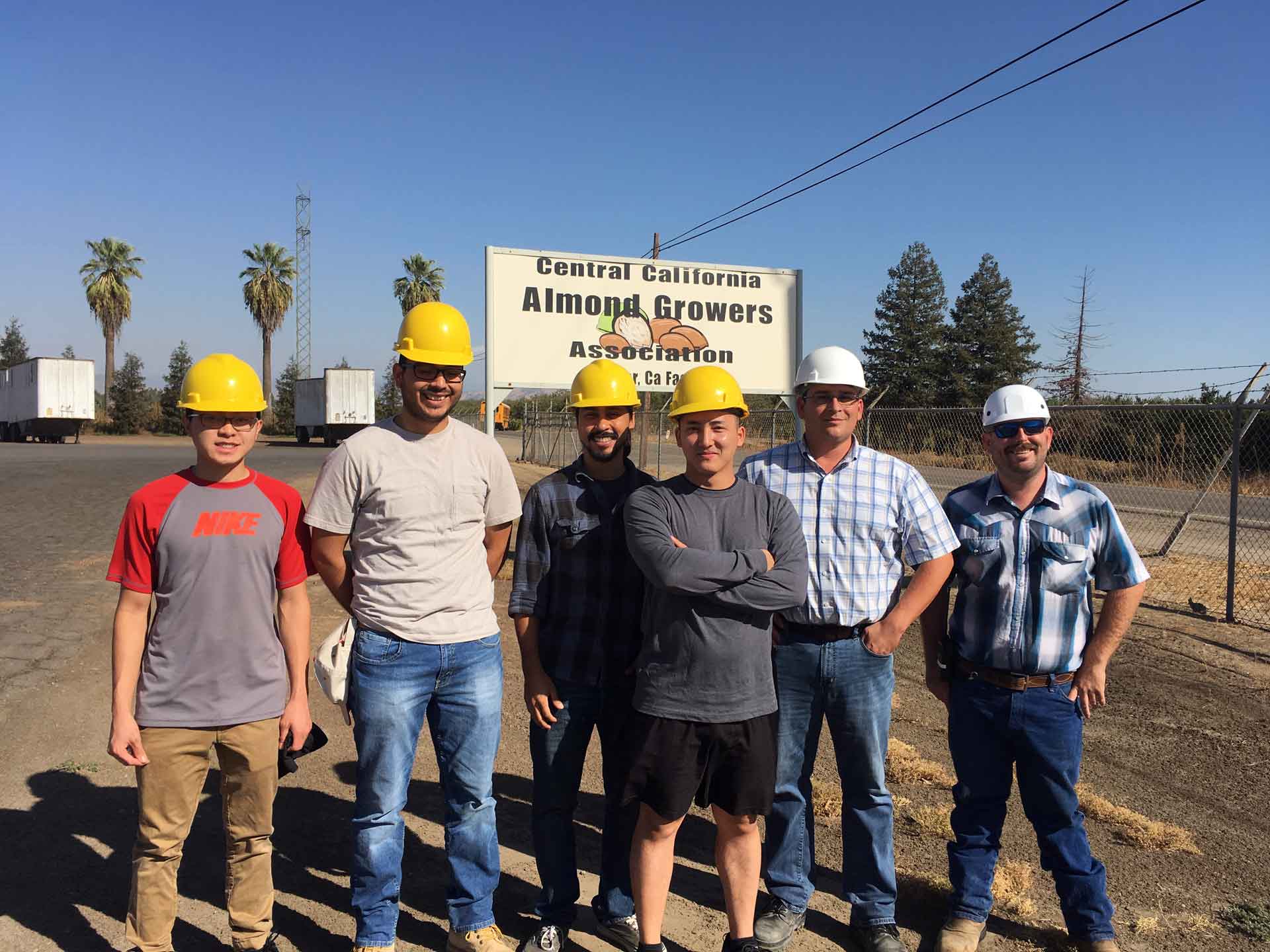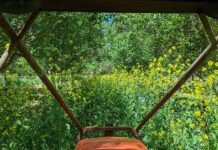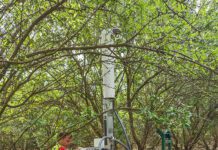
In early 2018, Board Members of the Western Agricultural Processors (WAPA) noticed a skillset that was lacking among current collegiate graduates looking for careers in the tree nut industry. Most graduates had experience in the cultivation of tree nuts, while exposure to tree nut hulling and processing was missing. WAPA Board Member Dan Pronsolino, Dunnigan Hills Hulling and Shelling, posed the question to WAPA staff to see if any agricultural universities would be open to developing a curriculum around tree nut hulling, shelling and processing. WAPA President/CEO Roger Isom reached out to his fellow board members on the Fresno State AgOne Foundation to see if there was any interest.
In December, WAPA members and staff met with Alcidia Freitas Gomes, executive director of the AgOne Foundation/Director of Development, and Dr. Athanasios Alexandrou, Dean of the Fresno State Department of Industrial Technology, to discuss the needs of the industry.
Dr. Alexandrou tasked WAPA Board Members to assist him in developing the syllabus. With specific industry needs in mind, WAPA Board Members put ideas onto paper that would encompass aspects of all four major tree nuts grown in California. Industry representatives, like David Stanfield of Summerfield Farms in Hanford, began reaching out to equipment dealers and manufacturers to secure equipment donations for the four major tree nuts grown in California. The syllabus was developed with the focal point of the course being that students would… “Study the fundamentals and operations of modern nut processing lines.”
Students would experience the culture of the tree nut industry starting with the planting of all varieties of tree nuts, the harvesting of mature trees, as well as the hulling, shelling and processing activities. Students would study the various equipment associated with processing facilities from conveyance, to drying, to sizing and sorting. The course would also offer experience on the maintenance of equipment, the installation process, electrical and fuel needs of specific equipment, and advanced hydraulic requirements. Students would then learn about the various regulatory requirements, with lectures touching on the numerous safety requirements for employees and operators, as well as the Food Safety Modernization Act. Overall, students will experience the tree nut industry from planting to packaging.
Currently, Fresno State has received over $1 million dollars in equipment donations or commitments on specific equipment. Dr. Alexandrou hopes to have the line installed by the Spring Semester. The hulling and processing line will incorporate single line equipment, and be interchangeable for nut specific equipment demonstrations. In the meantime, students are touring operational facilities in the Valley, and learning from owners and operators. Future lab lessons will be taught by various industry representatives starting with growers, facility managers, equipment manufacturers and finally, legislative and regulatory compliance associations such as the Western Agricultural Processors Association. Students currently enrolled in the Department of Industrial Technology, and the Jordan College of Agriculture are able to enroll in this course for credit.
In the end, the goal of the Fundamentals of Nut Processing course is to bring hulling, shelling and processing experience to college students. There will be more specific focus on the various equipment utilized in the processing of the four tree nuts. However, students will have an overall better understanding on the culture of tree nuts in California. Providing this type of industry experience to students will only help bolster the abilities of future applicants in the tree nut industry.

Cecilia Parsons
Cecilia Parsons has lived in the Central Valley community of Ducor since 1976, covering agriculture for numerous agricultural publications over the years. She has found and nurtured many wonderful and helpful contacts in the ag community, including the UCCE advisors, allowing for news coverage that focuses on the basics of food production.
She is always on the search for new ag topics that can help growers and processors in the San Joaquin Valley improve their bottom line.
In her free time, Cecilia rides her horse, Holly in ranch versatility shows and raises registered Shetland sheep which she exhibits at county and state fairs during the summer.















